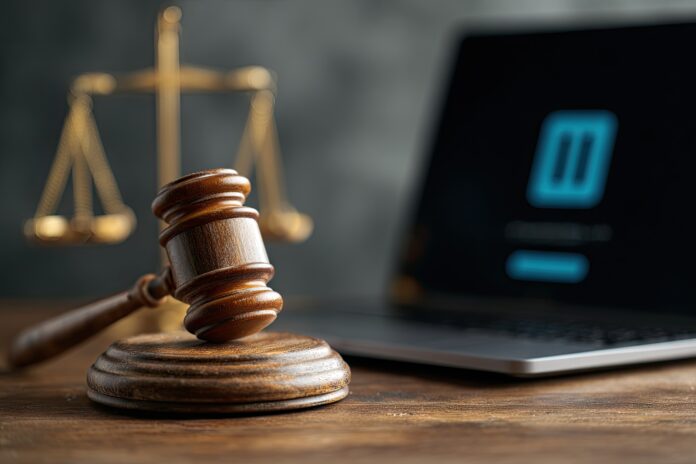Why Your Deleted ChatGPT Conversations Aren’t Gone Anymore
OpenAI storing deleted ChatGPT conversations is now a reality, all due to a recent court order related to The New York Times’ (NYT) copyright lawsuit. For millions of users who believed their sensitive chats were safe—and truly deleted—this legal twist changes everything [4]. Most importantly, the implications stretch far beyond this single legal battle, sparking a massive debate about privacy, data retention, and the future of AI accountability.
The Lawsuit That Changed Data Deletion at OpenAI
To understand why OpenAI is storing deleted ChatGPT conversations, it’s important to review the ongoing lawsuit. In December 2023, The New York Times, along with other news organizations, filed a lawsuit against OpenAI and Microsoft. Their core allegation? That AI models such as ChatGPT and Microsoft’s Bing Chat were trained on millions of copyrighted articles without authorization or compensation [3].
The NYT argues this infringes on intellectual property and threatens the financial future of journalism. In response, the court issued an order on May 13, 2025, instructing OpenAI to “preserve and segregate all output log data that would otherwise be deleted on a going forward basis until further order of the Court” [3].
What’s Really Being Stored?
OpenAI is now required to keep not just active conversations, but all ChatGPT user data—specifically including those chats that users have manually deleted. This change overrides OpenAI’s previous privacy policy, where deleted conversations were permanently removed from their servers within 30 days [2]. Because of this, any conversation, regardless of how private, is now subject to indefinite storage until the legal proceedings conclude [4].
Why Is This Happening?
The driving force behind the court’s order is the plaintiffs’ insistence that all possible evidence be preserved for examination. The NYT and other plaintiffs contend that user queries and the responses generated by ChatGPT may reveal whether and how copyrighted material was presented to end users without proper licensing or payment [2].
Therefore, under federal litigation rules, OpenAI must suspend routine data deletion for relevant information that might become evidence [1].
OpenAI’s Response: Fighting for User Privacy
OpenAI’s executive team, including CEO Sam Altman and COO Brad Lightcap, has strongly opposed the order. Their position is clear: forcing OpenAI to store deleted ChatGPT conversations not only violates the company’s privacy commitments but also sets a dangerous precedent for the broader tech industry [3].
OpenAI argues that the NYT’s demand is sweeping, unnecessary, and risks user privacy with no clear benefit to the resolution of the lawsuit [2]. In its public statements, OpenAI has confirmed it is appealing the court’s order to ensure user trust remains at the forefront of their operations [2].
How Are Users Reacting?
The news that OpenAI is storing deleted ChatGPT conversations has sparked widespread concern—and in some cases, panic—across consumer and business communities. Because people have relied on OpenAI’s deletion policy to remove sensitive or confidential exchanges, the indefinite retention of these chats now raises questions about data privacy, legal exposure, and even compliance with global data protection regulations [5].
Many users have begun reassessing what information they share with AI platforms, especially when discussing topics ranging from health and legal issues to proprietary business details [5].
The Future of AI Privacy: What’s at Stake?
This development could change how users interact with generative AI. Besides that, it challenges industry norms around data ownership, privacy, and user consent. If courts continue to favor broad data retention for legal discovery, companies may need to overhaul their privacy promises—and users will need to adapt their expectations.
Therefore, the outcome of OpenAI’s ongoing appeal will be closely watched. It will likely shape not only the future of AI-powered tools, but also the broader debate over tech privacy, copyright, and the responsibilities of companies entrusted with sensitive user data.
What You Can Do Now
If you use ChatGPT or any similar AI platform, think carefully about what you share, especially while this order is in effect. Review privacy settings, watch for updates from OpenAI, and consider alternative options like OpenAI’s “Zero Data Retention” API endpoints if you need maximum confidentiality [2].
Conclusion
The requirement for OpenAI to store deleted ChatGPT conversations as part of its NYT lawsuit marks a turning point in tech privacy. Because of this legal clash, every user—whether casual or enterprise—should stay informed and protect their digital footprint as the case unfolds. Trust, privacy, and the future of digital conversation are all at stake.
References
- OpenAI is storing deleted ChatGPT conversations as part of its NYT lawsuit
- How we’re responding to The New York Times’ data demands in order to protect user privacy
- OpenAI Appeals Court Order to Preserve ChatGPT Data in NYT Copyright Lawsuit
- OpenAI forced to preserve ChatGPT chats
- Your ChatGPT Logs Are No Longer Private (And Everyone’s Freaking Out)



